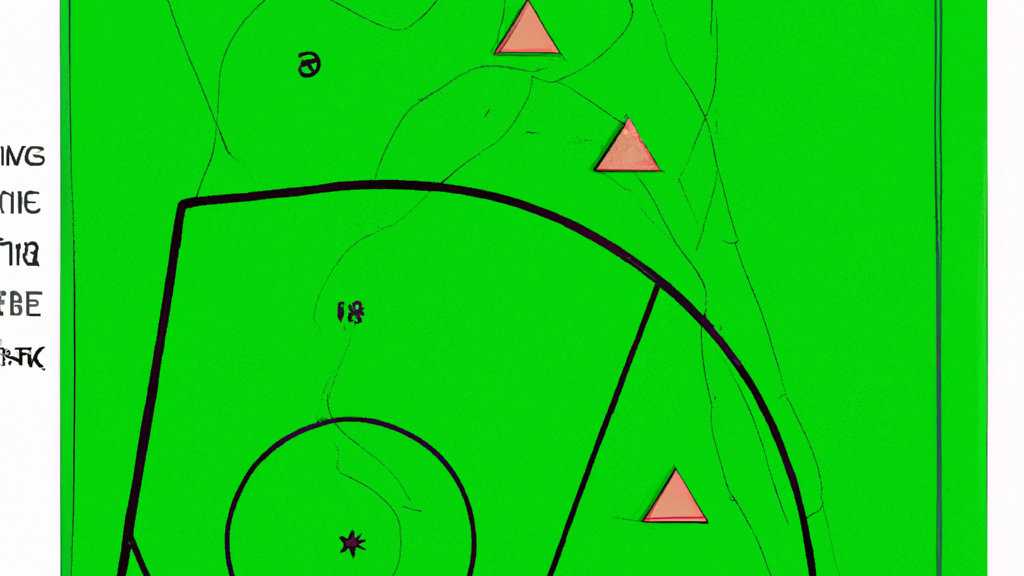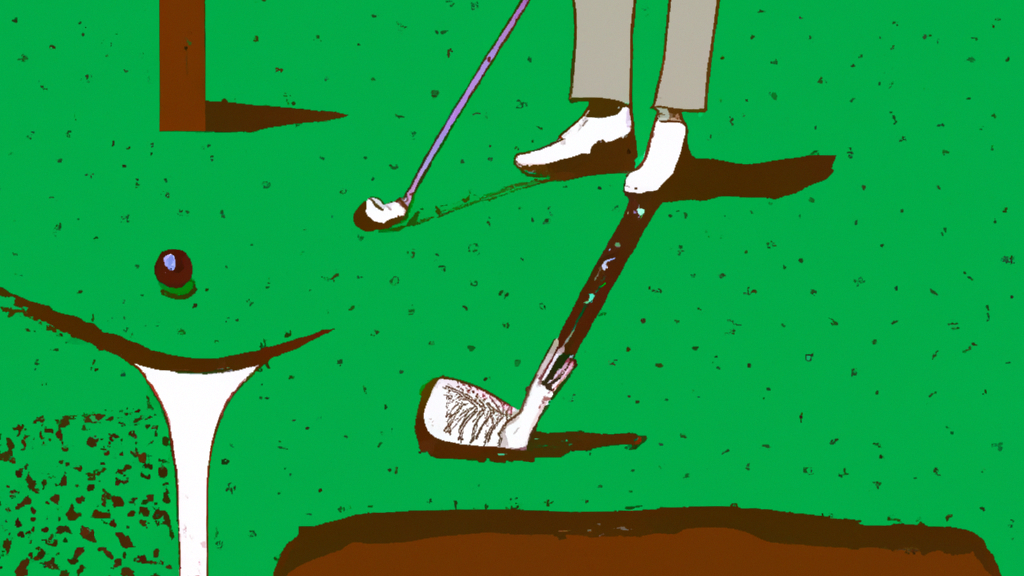TEE TIME THERAPY: HOW GOLFING CAN REDUCE STRESS AND ANXIETY
Golfing is not just a sport, it’s a way of life. For many, it’s a way to escape the hustle and bustle of everyday life and find peace on the green. But did you know that golfing can also be a form of therapy? Tee Time Therapy is a growing trend that is gaining popularity among golf enthusiasts and mental health professionals alike. Research has shown that golfing can reduce stress and anxiety, improve mood, and even boost self-esteem. In this article, we will explore the benefits of Tee Time Therapy and how it can improve your overall well-being.
So grab your clubs and let’s tee off into a world of relaxation and mental clarity.

TEE TIME THERAPY: HOW GOLFING CAN REDUCE STRESS AND ANXIETY
Golfing is a sport that has been around for centuries, and it has become a popular pastime for many people around the world. While some people may view golfing as a leisure activity, it can actually be a great way to reduce stress and anxiety. In this article, we will explore the benefits of golfing and how it can help you manage your stress levels.
1. Improved Concentration
Golfing is a sport that requires a lot of focus and concentration. When you are out on the course, you need to be fully present in the moment and focused on your game. This level of concentration can help you to clear your mind and forget about any stress or anxiety that you may be feeling.
2. Physical Benefits
In addition to the mental benefits of golfing, there are also physical benefits. Golfing is a low-impact sport that can help you to stay active and improve your overall health. Walking around the course and swinging your clubs can help to improve your cardiovascular health, strengthen your muscles, and improve your flexibility.
3. Time Outdoors in Nature
One of the reasons why golfing is such a great stress-reliever is because it allows you to spend time outdoors in nature. Being outside in the fresh air and sunshine can help to boost your mood and reduce feelings of anxiety and depression. In fact, studies have shown that spending time in nature can help to reduce cortisol levels, which is the hormone that is associated with stress.
4. Social Activity
Another benefit of golfing is that it can be a social activity. Playing a round of golf with friends or family members can be a great way to connect with others and build relationships. Social support is an important factor in managing stress and anxiety, and golfing can provide an opportunity to strengthen your social connections.
5. Take Lessons and Practice Mindfulness
If you are new to golfing, it can be helpful to take lessons from a professional. Learning the proper techniques and strategies for playing golf can help you to feel more confident and in control on the course. This can help to reduce feelings of anxiety and stress that may arise when you are playing.
In addition to taking lessons, it can also be helpful to practice mindfulness techniques while you are golfing. Mindfulness involves being fully present in the moment and focusing on your thoughts and feelings without judgment. When you are golfing, you can practice mindfulness by focusing on your breath, your swing, and the sensations in your body. This can help you to stay calm and centered, even when you are facing challenging shots or difficult situations on the course.
6. Strategies for Professional Golfers
If you are a professional golfer, you may face additional stressors that can impact your mental health. The pressure to perform at a high level, the demands of travel and competition, and the scrutiny of the media and fans can all contribute to feelings of stress and anxiety. However, there are strategies that you can use to manage these stressors and maintain your mental health.
One strategy is to focus on the process of playing golf, rather than the outcome. Instead of worrying about winning or losing, focus on the steps that you need to take to play your best game. This can help you to stay present in the moment and avoid getting caught up in negative thoughts or emotions.
Another strategy is to practice self-care. This can involve taking time to rest and recover after a tournament, eating a healthy diet, getting enough sleep, and engaging in activities that you enjoy outside of golf. Taking care of your physical and mental health can help you to feel more resilient and better able to cope with the demands of professional golf.
Conclusion
In conclusion, golfing can be a great way to reduce stress and anxiety. Whether you are a beginner or a professional golfer, there are many benefits to spending time on the course. Golfing can help you to improve your mental and physical health, connect with others, and enjoy the beauty of nature. By practicing mindfulness, focusing on the process of playing golf, and taking care of your physical and mental health, you can use golfing as a tool for managing stress and anxiety in your life. So, the next time you are feeling stressed or anxious, consider heading to the golf course for some tee time therapy.

- Glennon Golf Classic – SSM Health Cardinal Glennon Children’s …
Join us at the Columbia Golf Club for the Glennon Golf Classic to support Music … music therapy has been proven to reduce stress and anxiety, alleviate … - Golf Anxiety: Dealing with Stress while Improving your Game – The …
Mar 16, 2020 … Learn how to deal with anxiety during your golf game. … Golf shouldn’t be stressful, but that often depends at what level you play at, … - Massage Benefits for Golfers | Tampa Bay Sports & Medical Massage
Apr 26, 2019 … Golf and fitness massage therapy can reduce the muscle tightness that … too much stress, anxiety, and pressure can negatively affect your … - 25 Quick Ways to Reduce Stress | Colorado Law | University of …
However, there isn’t always time to take a nap, hike a fourteener, … method that involves breathing through one nostril at a time to relieve anxiety. - 5 Tips for Calming Your Nerves on the Golf Course
The results are enough to encourage any golfer to consider a pack of gum … lower levels of anxiety and depression compared to those who didn’t chew gum. - Project Golf Myrtle Beach
Don’t miss out on this incredible opportunity to play golf for a good cause. … mental exercise and can relieve anxiety and reduce depression and stress. - 6 Reasons Golfers Need Regular Massage – Zeel
Aug 7, 2022 … And, if a reduced injury risk isn’t enough for you, according to physical therapist Dr. John Gallagher (certified by the Titleist Performance … - Adjusting to Retirement: Handling the Stress and Anxiety …
Feb 22, 2023 … Feeling anxious at having more time on your hands, but less money to spend. Finding it difficult to fill the extra hours you now have with … - The Mental Health Benefits of Playing Golf | ATRIO Health Plans
Jul 28, 2020 … As we get older, it’s essential to keep moving to stave off anxiety and depression and reduce stress levels to improve overall health and … - Tennis Elbow: What it is, Causes, Symptoms & Treatment
Jun 17, 2021 … Golfers can get tennis elbow, just as tennis players may get … stop or decrease activities for several weeks to give tendons time to heal.
The lesser-known side of Tee Time Therapy: How Golfing Can Reduce Stress and Anxiety
- Golf is believed to have originated in Scotland during the 15th century.
- The first recorded game of golf was played on March 26, 1297, in the Netherlands.
- The longest hole in professional golf is the seventh hole at Satsuki Golf Club in Japan, measuring a whopping 964 yards!
- In ancient Rome and Greece, people used to play a game similar to modern-day golf called “paganica.”
- Tiger Woods holds the record for most consecutive weeks as world number one golfer with a total of 281 weeks.
- The oldest continuously running golf course outside of Scotland is located on Mackinac Island, Michigan and dates back to 1898.
- Professional golfer Phil Mickelson has won five major championships but has also finished second place six times at major tournaments – earning him the nickname “the bridesmaid.”





